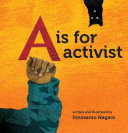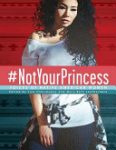Listed below are teacher resources, picture books, fiction and non-fiction books that address anti-racism.
Teacher Resources
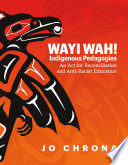 Wayi wah!: Indigenous pedagogies: an act for reconciliation and anti-racist education
Wayi wah!: Indigenous pedagogies: an act for reconciliation and anti-racist education
by Jo Chrona
How can Indigenous knowledge systems inform our teaching practices and enhance education? How do we create an education system that embodies an anti-racist approach and equity for all learners? This powerful and engaging resource is for non-Indigenous educators who want to learn more, are new to these conversations, or want to deepen their learning.
 Brave community: teaching for a post-racist imagination
Brave community: teaching for a post-racist imagination
by Janine de Novais; foreword by Robin D.G. Kelley
At the core of the intractability of racism is the persistent cultivation of our collective ignorance of it. This book argues that this cultivated ignorance compels us to support a status quo that we abhor. We are stuck because we cannot imagine a world beyond racism. We are also stuck because engaging with issues of racism with others usually produces immense acrimony and little result. The author responds directly to this challenge by introducing Brave Community–a research-based and learner-tested method that leverages learning as a vehicle to increase the bravery and empathy that we need to both imagine and pursue a world beyond racism.
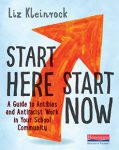 Start Here, Start Now: A Guide to Antibias and Antiracist Work in Your School Community,
Start Here, Start Now: A Guide to Antibias and Antiracist Work in Your School Community,
by Liz Kleinrock
For educators wanting to foster an antibias and antiracist classroom and school community, Start Here, Start Now discusses where and how to get started, addressing questions and challenges many educators have regarding the topic.
 For white folks who teach in the hood and the rest of y’all too,
For white folks who teach in the hood and the rest of y’all too,
by Christopher Emdin
Combines real stories with research, theory, and practice to explain how teachers can build communities within the classroom using culturally relevant strategies. Emdin draws on his own experiences feeling invisible in the classroom, and offers a new perspective on teaching and learning in urban schools while challenging the traditional top-down pedagogy of urban education.
Textured teaching: a framework for culturally sustaining practices
by Lorena Escoto Germán
Textured Teaching is a framework for teaching and learning about texts, centered in love and social justice. The term social justice refers to a redistribution of resources, opportunities, wealth, and power that promotes equity. A teaching approach that strives for social justice, then, is one that openly addresses social injustices and functions in a way that leads students to reimagine an equitable redistribution.
 Teachers of Color: resisting racism and reclaiming education
Teachers of Color: resisting racism and reclaiming education
by Rita Kohli
Teachers of Color describes how racism serves as a continuous barrier against diversifying the teaching force and offers tools to support educators who identify as Black, Indigenous, or people of Color on both a systemic and interpersonal level. Based on in-depth interviews, digital narratives, and questionnaires, the book analyzes the toll of racism on their professional experiences and personal well-being, as well as their resistance and reimagination of schools.
We want to do more than survive: abolitionist teaching and the pursuit of educational freedom
by Bettina L. Love
Drawing on personal stories, research, and historical events, an esteemed educator offers a vision of educational justice inspired by the rebellious spirit and methods of abolitionists. Drawing on her life’s work of teaching and researching in urban schools, Bettina Love persuasively argues that educators must teach students about racial violence, oppression, and how to make sustainable change in their communities through radical civic initiatives and movements.
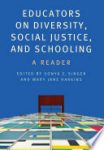 Educators on Diversity, Social Justice, and Schooling,
Educators on Diversity, Social Justice, and Schooling,
edited by Sonia E. Singer and Mary Jane Harkins
This book invites educators to reflect on school practices as a contextualised and social process, and to recognise the systemic and cultural impact of race, gender, class, sexuality and ability on the everyday lives of students.
The compassionate educator: understanding social issues and the ethics of care in Canadian schools
edited by Allyson Julé
The Compassionate Educator is an edited collection that explores the complexities that surround students’ lived realities and the variety of social issues that impact Canadian classrooms. Perhaps more urgently today than ever before, teachers in Canadian schools need to encounter current social issues from a place of deep understanding and compassion. Chapters focus on topics like mental health, Indigenous education, queer education, racism, youth radicalization, disability, religious responsiveness in schools, ensuring respect for ESL students, and teaching refugee students.
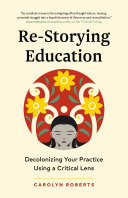 Re-storying education : decolonizing your practice using a critical lens
Re-storying education : decolonizing your practice using a critical lens
by Carolyn Roberts
Re-Storying Education is a process of dismantling old narratives taught in education and rebuilding new narratives that include all the voices that have created this place known as Canada today. This vital and timely book outlines how colonialism has shaped both the country and the public school system. Re-Storying Education uses an Indigenous lens, offering ways to put Indigenous education, history, and pedagogy into practice. It invites readers into an open dialogue in the pursuit of a more inclusive and just educational landscape.
Picture Books
by Ibram X. Kendi; illustrated by Ashley Lukashevsky
Niveau scolaire (Grade level): Baby-Preschool
Illustrations and rhyming text present nine steps Antiracist Baby can take to improve equity, such as opening our eyes to all skin colors and celebrating all our differences.
by Tami Charles; illustrated by Bryan Collier
Niveau scolaire (Grade level): Preschool-3
A lyrical, heart-lifting love letter to Black and Brown children everywhere reminds them how much they matter, that they have always mattered and they always will.
by Innosanto Nagara
Niveau scolaire (Grade level): K-7
This is an ABC board book for families that are unapologetic about activism and social justice.
The proudest blue: a story of hijab and family
by Ibtihaj Muhammad with S. K. Ali ; illustrated by Hatem Aly
Niveau scolaire (Grade level): K-4
Faizah relates how she feels on the first day her sister, sixth-grader Asiya, wears a hijab to school.
by David Alexander Robertson; illustrated by Julie Flett
Niveau scolaire (Grade level): K-3
When a young girl helps tend to her grandmother’s garden, she begins to notice things that make her curious. Why does her grandmother have long, braided hair and beautifully colored clothing? Why does she speak another language and spend so much time with her family? As she asks her grandmother about these things, she is told about life in a residential school a long time ago, where all of these things were taken away. When We Were Alone is a story about a difficult time in history, and, ultimately, one of empowerment and strength.
Fiction
by Hena Khan
Niveau scolaire (Grade level): 4-9
A Pakistani-American Muslim girl struggles to stay true to her family’s vibrant culture while simultaneously blending in at school. After her local mosque is vandalized, she is devastated. Her friend Soojin is talking about changing her name. Does Amina need to become more “American” and hide who she really is?
by Angie Thomas
Niveau scolaire (Grade level): 8-Adult
When Starr witnesses the fatal shooting of her childhood best friend at the hands of a police officer, her world is shattered. Now she’s the only person who knows the truth of what happened, but speaking up could put herself and her community at risk. Inspired by the Black Lives Matter movement, this is the story about one girl’s struggle for justice.
by Traci Chee
Niveau scolaire (Grade level): 8-12
For fourteen-year-old budding artist Minoru Ito, her two brothers, her friends, and the other members of the Japanese-American community in southern California, the three months since Pearl Harbor was attacked have become a waking nightmare: attacked, spat on, and abused with no way to retaliate–and now things are about to get worse, their lives forever changed by the mass incarcerations in the relocation camps.
Non-Fiction
edited by Lisa Charleyboy, Mary Beth and Leatherdale
Niveau scolaire (Grade level): 8-Adult
A collection of poems, essays, interviews, and art that combine to express the experience of being a Native woman.
We rise, we resist, we raise our voices
edited by Wade Hudson and Cheryl Willis Hudson; foreword by Ashley Bryan
Niveau scolaire (Grade level): 3-7
What do we tell our children when the world seems bleak, and prejudice and racism run rampant? With 96 lavishly designed pages of original art, poetry, and prose, fifty diverse creators lend voice and comfort to young activists.
by Tiffany Jewell; illustrated by Aurélia Durand
Niveau scolaire (Grade level): 4-12
Learn about identities, true histories, and anti-racism work…This book is written so young people will feel empowered to stand up to the adults in their lives. This book will give them the language and ability to understand racism and a drive to undo it. 20 lessons on how to wake up, take action, and do the work.
Finding More Resources
To find more resources in this area, try the following:
- Search using the General tab on the UBC Library website to look for material in all UBC Library branches.
- Search using “Search Education Resources” box in the left hand bar on the Education Library website to limit your results to physical materials in the Education Library.
- Use specific search terms to narrow your results, such as “race”, “anti-racism”, “racism”, “social justice,” “equity”, “diversity”, or “activism”.
- You may combine keywords relating to concepts of racial justice AND keywords about pedagogy, such as “pedagogy”, “teaching”, “education”, “primary school”, “secondary school”, “higher education”.
- To find lesson plans, include “lesson plans”, “lesson planning”, “study and teaching”, or “activity programs” in your search terms.
For more help with searching, please visit the Library Service Desk or e-mail ed.lib@ubc.ca.
